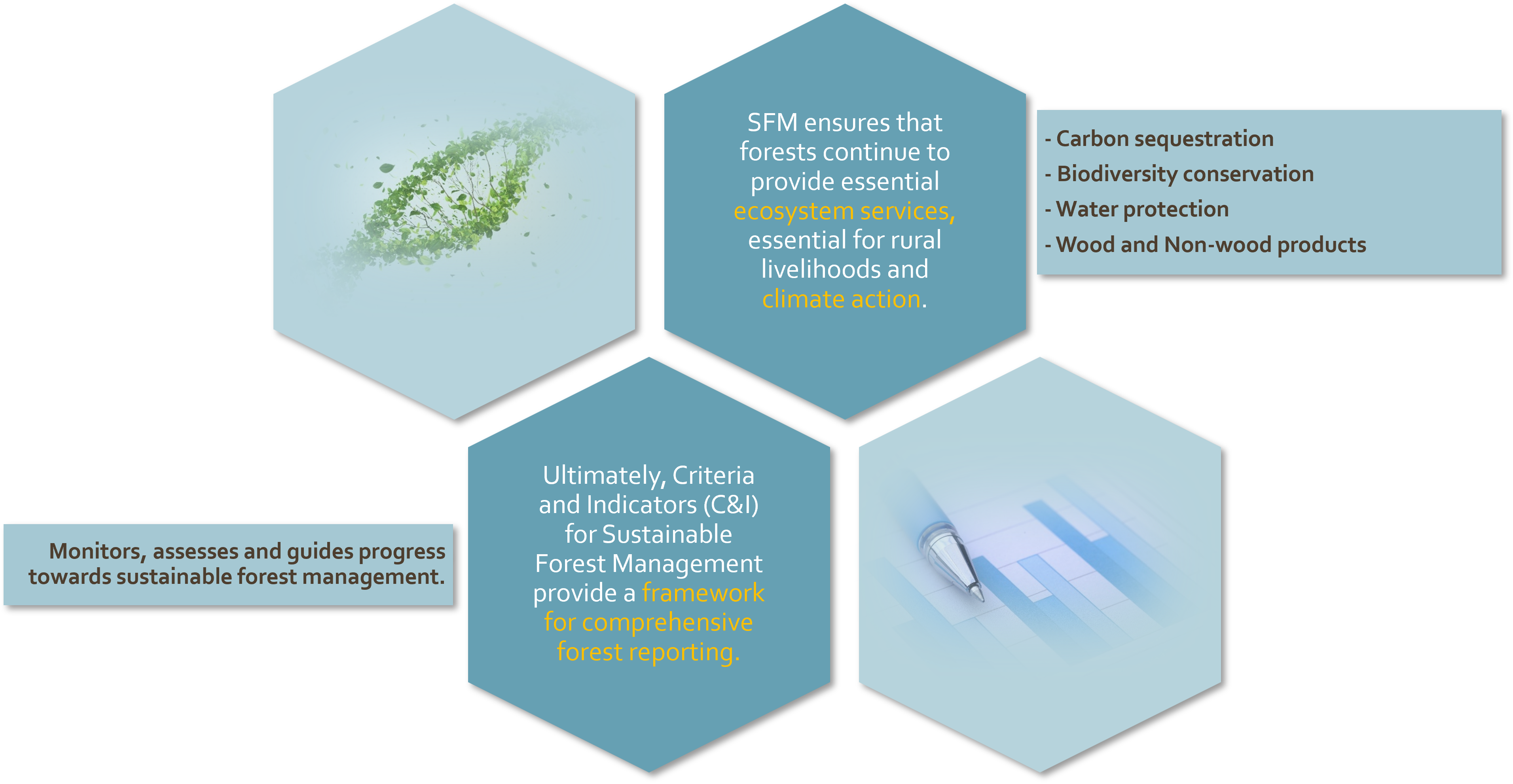SFM and Criteria and Indicators
The world's forests are under significant pressure from deforestation, degradation, and unsustainable practices, particularly in tropical and subtropical regions.
Sustainable Forest Management (SFM) is a holistic approach to forest management that meets the needs of the present, without compromising the ability of future generations to meet their own needs. It balances the environmental, economic, and social functions of forests, ensuring their health and productivity over the long term.
Furthermore, SFM ensures that forests continue to provide essential ecosystem services like carbon sequestration, biodiversity conservation, and water protection, essential for rural livelihoods and climate action.
Ultimately, Criteria and Indicators (C&I) for Sustainable Forest Management provide a framework for comprehensive forest reporting, which defines, guides, monitors and assess progress towards sustainable forest management.

The Joint UNECE/FAO Forestry and Timber Section, supported by the UNECE/FAO Team of Specialists on Monitoring Sustainable Forest Management, works together with countries and international processes on developing national and international reporting systems on forest information, while providing crucial support to capacity building.
More information at: https://unece.org/forests/forest-assessment